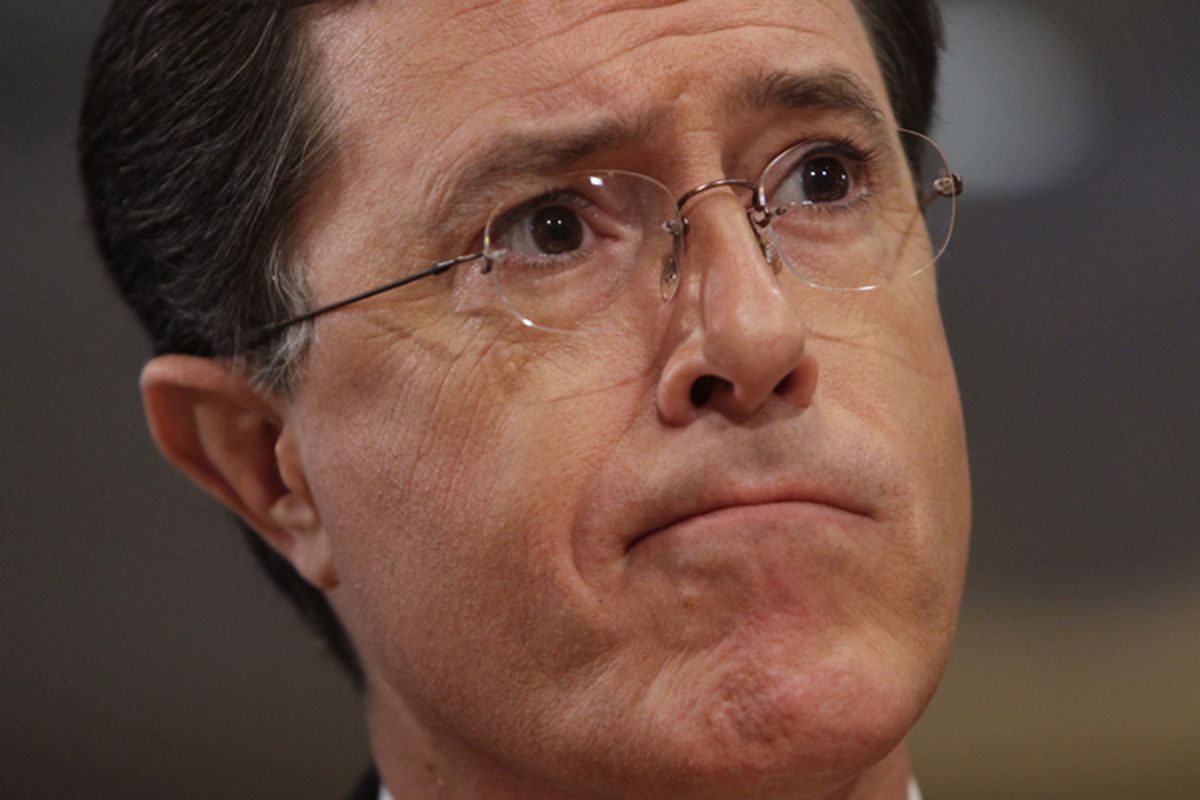In TIME's cover story this week, a profile of soon-to-be "Late Show" host Stephen Colbert, we learn a great deal. For example: As a child, Colbert said he was "occasionally reckless," destroying cars and chandeliers and anything placed in front of him. He chose the pronunciation of his last name with the emphasis on the second syllable because he thought it had more of a "worldly ring" to it. He has a deep-seated fear that the public perceives him as a politician (and a comedian, secondarily).
As it goes with any print publication, that comprehensive profile had to be whittled down quite a bit. Today, TIME released the extended version of the interview which includes an interesting look into Colbert's headspace as he neared the end of "The Colbert Report." As we already knew, Colbert was more than ready to sign off from the show. Expanding on this point for TIME, Colbert said that "it became very hard to watch punditry of any kind, of whatever political stripe."
"I wouldn’t want anybody to mistake my comedy for engagement in punditry itself," Colbert said. "And to change that expectation from an audience, or to change that need for me to be steeped in cable news and punditry, I had to actually leave. I had to change."
Keeping up with the character, Colbert said, also quickly became a tedious task. He was tired of "not letting people in."
"Toward the end of the last show, it was an act of discipline for me to continue to do the character," he said. "The discipline was not even just keeping the character’s point of view in mind or his agenda or a bible of his views, but there was also a need to not let people in, not let people see back stage—not necessarily know who I am so that the character can be the strongest suggestion in their mind when I do the show. If I let them know too much about me or our process, then I would be picking the character’s chicken. I don’t want to put so much light behind that particular stained glass or else he would fade completely."
Later, Colbert explained that, contrary to popular belief, he did break character many times on the show. The character-breaks were just edited out.
"People said, 'Oh, you never broke” or “You rarely broke.' That’s because we always took it out, because part of the character was he wasn’t a f—up," he said. "He was absolutely always on point. Win. Get over. Stay sharp. That was his attitude all the time, and we had to reflect that in the production of the show. None of that is necessary anymore. Now I can be a comedian."
Read the extended cover story via TIME here.

Shares